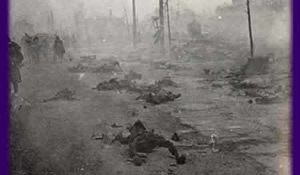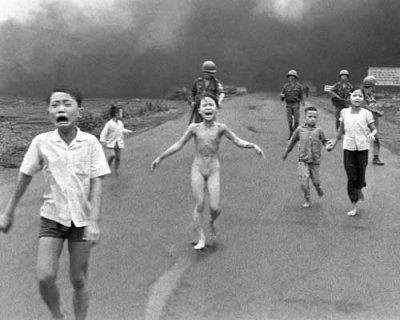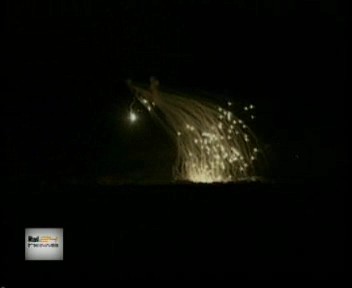
There’s been a lot of talk about the rioters in France, and a lot of analysis
of why they rioted.
Jocelyn Gecker (2005-11-02), for the Associated Press, reports on the seventh day of rioting. Experts
are said to say that Islamic radicals seek to recruit disenchanted youths by telling them that France has abandoned them
; sociologist Manuel Boucher suggests that French society is in a bad state … increasingly unequal, increasingly segregated, and increasingly divided along ethnic and racial lines,
and that some youths turn to Islam to claim an identity that is not French, to seize on something which gives them back their individual and collective dignity.
Gecker says that some said
that the unrest — sparked by the accidental deaths of two teenagers last week — is an expression of frustration over grinding unemployment and police harassment in the communities,
and cites direct quotes to that effect from the president of the Clichy-sous-Bois mosque, the Socialist mayor of Clichy-sous-Bois, and a 22 year old Moroccan-French resident of Clichy-sous-Bois. On the other hand, there are no direct quotes from any of the rioters as to why they are rioting.
Franck Prevel, reporting for Reuters (2005-11-07), discussed the escalating violence against police. He quoted a statement from the French police union, President Chirac, a police officer, Interior Minister Sarkozy, Prime Minister de Villepin, and mentioned a fatwa against the riots issued by one of France’s largest Muslim organizations
in response to official suggestions that Islamist militants might be stoking some of the protests
. Prevel mentions that rioting began with the accidental electrocution of two youths fleeing police in Clichy-sous-Bois outside Paris
and cites frustration among ethnic minorities over racism, unemployment and harsh treatment by police
. On the other hand, he doesn’t cite any direct quotes from any of the rioters as to why they are rioting.
Meryl Yourish (2005-11-03) linked to Gecker’s AP report; she suggested that there is a global war being driven by radical Islamism in European slums, and remarks that first they came for the Jews, and many did not speak out, because they were not Jews. Her post has a lot of analysis, but no direct quotes from any of the rioters on why they are rioting.
She added a later update which links to an article by Paul Belien (2005-11-02) in his Brussels Journal blog. The article cites Theodore Dalrymple’s poignant analysis
the crisis faced by British Muslims, and articles from FOX News, the Associated Press and Agence France-Presse, Knack, and a Danish blog called Viking Observer
on the dangers faced by police and other emergency workers in Muslim slums in Malmo and Brussells, and rioting by mostly Muslim youths in France and Denmark. Belian suggests that these are problems all across Europe, and that they’ve resulted from a naive belief in universal cultural compatibility
, the harsh reality of looming permanent conflict,
and weak-kneed appeasement
by the government officials in European countries. He suggests that the proximate cause of the French riots was unreasonable resentment over reasonable attempts by the French police to do their job; and that they were exacerbated by the unwillingness of the French government to take a more militant response. He quotes Viking Observer’s
translation of some direct quotes from Danish rioters, as reported in the Danish press; on the other hand, he has no direct quotes, and links to no stories with direct quotes, from French rioters on why they are rioting.
At Positive Liberty, Jason Kuznicki (2005-11-07) argues that evidence for radical Islamist involvement is thin at best
, and argues that it has much more to do with the material and the cultural conditions faced by young men in communities marked by poverty, dependency, desperation, and ghettoization, in turn caused by the French government’s restrictive economic and social policies. He cites some comments by Mark Brady at Liberty and Power, who in turn cites commentary by British sociologist Frank Furedi, attributing the riots to the exhaustion
of national politics in Western Europe, and commentary by British writer James Heartfield, who suggests that It is not that assimilation has failed, but that France only pays lip service to assimilation, while practically refusing it to the descendants of North African migrants.
Timothy Sandefur dissents, arguing that there is good reason to believe that at least a large part of the Islamic world does see the situation in France as an Intifada
. He offers some subtle comments aimed at demonstrating the ways in which an extremely insular immigrant population
and a stagnant, stultified economy
can, by producing an an angry mass of economic and social outcasts, which comes to see itself as exploited by another large segment of the community
, provide an opportunity for violent, hatred-fueled ideologies such as fascism or terrorist Islamism. He suggests that in such a situation the causal threads tying together the material conditions and the Islamist ideology can intertwine
so thoroughly that it may not make any sense to try to separate the one from the other when trying to give causal explanations of the violence that ensues. He cites commentary from the Affordable Housing Institute, which discusses the alienation and insularity created by France’s public housing policy and mentions statements by Interior Minister Sarkozy, President Chirac, Prime Minister de Villepin, Foreign Minister Philippe Douste-Blazy, authorities
(who anonymously say that it’s Islamist militants and drug traffickers), and A Clockwork Orange. He also cites two news articles — one on the arrests, back in September, of some suspected members of an Algerian terrorist group living in France; and another from a reporter who seems to have actually found a website in which the rioters make bellicose statements and brag about their martial accomplishments. On the other hand, neither that article nor any of the others, nor Sandefur’s commentary, nor Kuznicki’s, nor Brady’s, nor Furedi’s, nor Heartfield’s, contains any direct quotes from any of the rioters on why they are rioting.

Brad Spangler (2005-11-04) thinks that it’s racialized violence and the ghettoization created by the welfare state, with conditions that have far more in common with the recent riots in Toledo (or in Watts a generation earlier) than they do with events in the Middle East
.
French fascist demagogue Jean-Marie Le Pen blames mass immigration, the moral corruption of the country’s leaders, disintegration of the country and social injustice.
David Brooks (2005-11-10) thinks it’s French gangsta rap.
Victor Davis Hanson (2005-11-07) thinks that the riots are a clear example of what happens to a society that doesn’t ask the immigrant to integrate, and the immigrant doesn’t feel that he has to integrate, or to learn the language, or learn the traditions of the West
, and further blames the French govement’s appeasement
of Muslim immigrants.
Colby Cosh (2005-11-07) argues that France has undeniably been more aggressive than the Anglo-Saxon countries in asserting a unitary national culture
and blames the despair and anger created by a government housing policy that amounts to warehousing members of a particular ethnic group in horrible, unsightly, cheaply-made housing projects.
Rox’s friend from Paris says that it’s not an Islamic riot
at all, but rather drug dealers defending their turf from the police.
Emma Kate Symons (2005-11-12) thinks it’s the expression of a violently male supremacist adolescent culture.
Mark Steyn (2005-11-10) thinks this is the start of a long Eurabian civil war we’re witnessing here
.
On the other hand, none of them cite any direct quotes from any of the rioters as to why they’re rioting.
So why did all those rioters set towns across France afire? Don’t ask me. How would I know? If you want to find out, ask a rioter Pourquoi?
You might even wait for the answer before you start offering an analysis.











